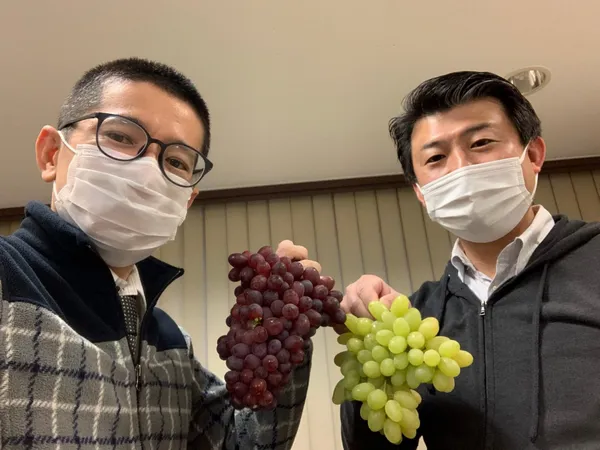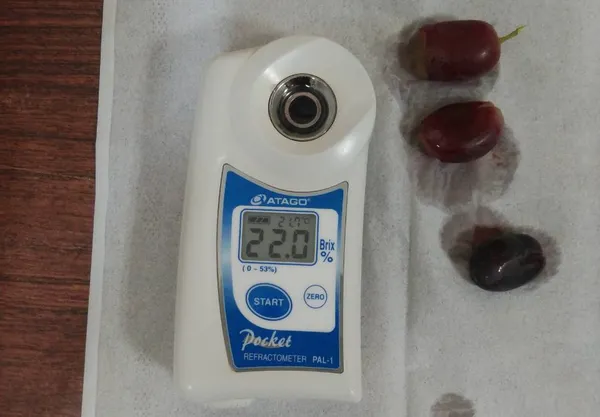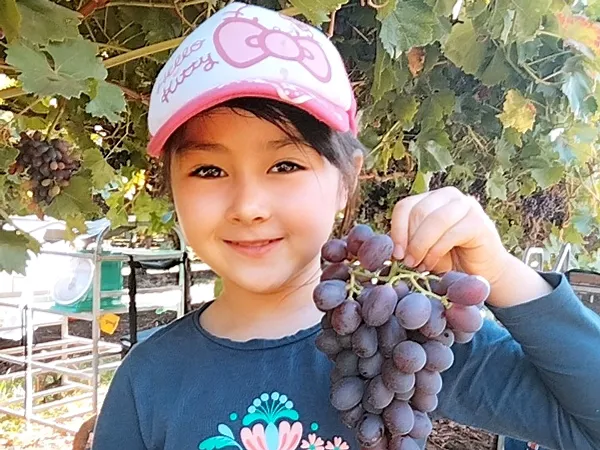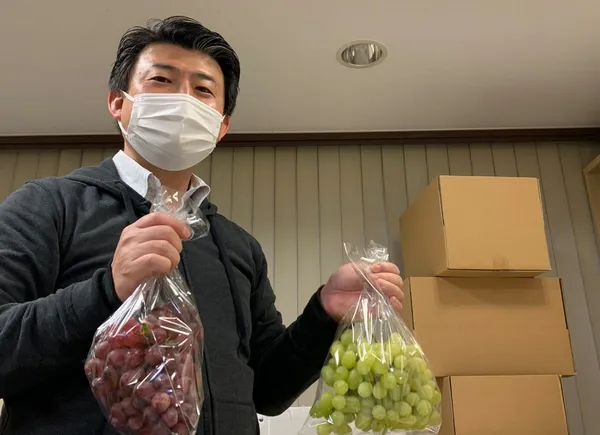A Victorian table grape producer is highlighting the importance of good quality fruit in a COVID-19 affected period, as it has helped him continue his sales growth in Asia.
Budou Farms, in Merbein Victoria, supplies premium grapes primarily into the Japanese market, with the latest shipment arriving within the past fortnight. Co-owner Enrique Rossi says his fruit has been a standout in retail stores.
"Our fruit has been very well received, due to the high Brix and quality offered," he said. "Our direct interaction with consumers using social media has helped us to establish very good relationships over there, creating a demand from consumers directly in a unique way. On the other side, we also got feedback, that other exporters rushed to send fruit a few weeks earlier than us with low Brix and were not a very smart move for them, but it ratifies that consistent quality sells."

However, he added that some niche outlets have a very mixed reaction in terms of customer sales. Some are increasing and others having very little due to the cycle of the partial lockdown and measures taken by the Japanese government, with time restrictions on establishments and lack of travellers for hotels. But despite challenges, Mr Rossi says sales continue to grow.
"After all these years of setting new standards, changing packaging, packing style, ensuring high Brix and showing our way to manage the cold chain differently to competitors and despite the pandemic for the last two seasons, we have managed to keep increasing our sales about 25 per cent every year," he said. "On the other side due to weather conditions that were unfavourable for Thompson seedless, we will have to stop earlier than planned on this line and maintain Crimson that is still being harvested and is still in good condition with a good demand for our brand."

This year, Budou Farms has also had an opportunity for sales in specific online markets, which Mr Rossi says require zero residues and require wiser use of chemicals compared to local Japanese grapes.
"This is a new way for us, we are excited and learning from this," Mr Rossi said. "Most of the times our fruit is zero residue at the moment of harvest unless there is a rain event and we have no choice we have to break our standard. So, this is very well received as well, but that specific segment of stores in Japan do have a small tag saying if the fruit was treated post-harvest or it might have any residue on it."
But there have been recent challenges. He says that COVID-19 is really taking a toll on table grape growers, as some have to work even longer hours, with more stress and less returns, for some.
"I know cases of growers this year could not even sell half of the crop due lack of workers and market conditions,” Mr Rossi said. “Meanwhile, retailers, marketers and supermarkets are having record profits, but not the growers, some produce lines are oversupplied despite the shortage of workers meanwhile local and export markets are reacting upon their or cycle of lockdowns and economy."

The shortage of workers is a huge problem, not just for Budou Farms but for the horticulture industry as a whole. He explains that the ones remaining are just taking the easiest and better-paid jobs, and in addition, all businesses must be COVID compliant - often with an extra cost associated with it.
"We enjoy the freedom of no active cases in Victoria and very few nationally, but thinking for next season, seems nearly impossible to harvest the fruit under a scenario of even lesser people available, most likely if borders are not open by October," he said. "We will have to take the decision to decrease volume and quality to maintain vines and make harvest affordable. The Pacific Islander scheme is a good and noble idea but is mostly designed for big corporations, while the small and medium-sized grower will have to just stay looking. Government must come forward with an Ag visa and a different view to attract workers, starting to look for neighbouring countries with people that do want to come to work in agriculture. The same goes for locals, we should have a different tax system for those working on the land, that would make it more attractive for anyone. Also, we require innovative ways to assist us in having accommodation on the farm, so in the scenario of COVID we could be better prepared to isolate workers and stop spreading."
Another challenge this year for Mr Rossi was the continuous and last-minute changes of dates and voyage length of vessels, meaning he had to be very careful to accomplish protocol days.
"This year our second-week loading arrived before the first, as vessels are changing dates and voyage by the hour," Mr Rossi said. "Same goes with market information; there are many bargain hunters out there, asking for premium fruit at a very low price or due reactive and panic action thinking in shortage of workers there is more supply at once. The channels that should be providing the information are not doing it and some are profiting from it."

Production-wise, he says the weather this year was very unfavourable during flower time, having a heatwave to cold and wind with rainy days, which translated into bad pollination and uneven berry size within the cluster and in some cases small size clusters and smaller than expected berry size.
"We still managed to have some amount of XL and L fruit, but some places were just a minimum size of 16 mm. However, the ‘veraison stage’ and colour of fruit was positive, with good colour and quick maturity," Mr Rossi said. "In Japan we have worked all year, looking for different outlets, such as online sales and specialized fruit shops, plus extending sales to Kansai and some other major regions, meanwhile planning in advance with Y'Smart and Itoyokado in Kanto. Indeed, there are opportunities for growth and might appear as the whole global economy improves in coming years, branding and point of differentiation whichever it is, selling direct in times like this, pays off."
Mr Rossi says that Budou Farms is always open for new market opportunities, and is working on new varieties developed in conjunction with a Japanese breeder, as a background project that will take place here in Australia and in Japan.
For more information
Enrique Rossi
Budou Farms
budoufarms@gmail.com
www.facebook.com/budoufarms
